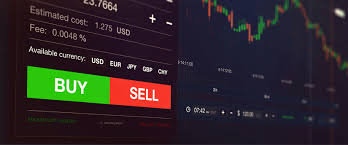
The Rise of AI in Forex Trading: Transforming the Financial Landscape
In recent years, artificial intelligence (AI) has become a transformative force across various industries, and the world of Forex trading is no exception. With its ability to analyze massive amounts of data at lightning speed, AI is helping traders make informed decisions, increase efficiency, and optimize their trading strategies. AI Forex trading algorithms can process information from numerous sources, including news articles, social media, and economic indicators, enabling traders to respond quickly to market changes. As the demand for automated trading solutions grows, the integration of AI in Forex trading platforms is becoming increasingly prevalent, allowing both novice and experienced traders to leverage sophisticated technology in their trading endeavors. For those interested in trading in compliance with Islamic finance principles, it is essential to choose the right platforms. Consider checking out ai forex trading Top Sharia Forex Platforms as a great starting point.
Understanding AI in Forex Trading
AI encompasses a wide range of technologies, including machine learning, natural language processing, and neural networks. In Forex trading, these technologies can be used to develop algorithms that identify patterns, predict currency movements, and assess potential risks. For instance, machine learning algorithms can analyze historical price data to identify trends and make real-time predictions based on current market conditions. This capability makes AI a valuable tool for traders looking to maximize profits and minimize losses.
Benefits of AI Forex Trading
The adoption of AI in Forex trading offers several key benefits:
- Speed and Efficiency: AI systems can process large volumes of data much faster than human traders. This allows them to react quickly to market changes, potentially capitalizing on profitable trading opportunities before they disappear.
- Accuracy: By leveraging advanced algorithms, AI can provide more accurate predictions and analyses than traditional trading methods, reducing the likelihood of human error.
- Emotionless Trading: AI trading systems operate based on logic and data, eliminating emotional biases that can affect human traders. This objectivity can lead to more consistent trading results.
- 24/7 Trading: AI can monitor the Forex market around the clock, making it possible to execute trades at any time, regardless of the trader’s availability.
Challenges and Risks of AI in Forex Trading

Despite the numerous advantages, there are also challenges and risks associated with AI in Forex trading:
- Data Quality: The effectiveness of AI algorithms relies heavily on the quality of the data used for training. Poor-quality or biased data can lead to inaccurate predictions.
- Market Volatility: Forex markets can be highly volatile, and while AI can help identify trends, it may not always be able to account for unexpected events that can move markets dramatically.
- Dependency on Technology: Over-reliance on AI systems can lead to complacency among traders, reducing their ability to analyze market conditions independently and make informed decisions.
- Regulatory Concerns: As AI becomes more prevalent in Forex trading, regulatory bodies may impose new rules that could impact how AI systems operate and how data is utilized.
The Future of AI in Forex Trading
Looking ahead, the role of AI in Forex trading is expected to grow significantly. As technology continues to advance, we can anticipate more sophisticated algorithms that not only provide real-time analysis but also incorporate predictive analytics to determine potential market shifts before they happen. This evolution could redefine trading strategies, making them even more data-driven and automated.
Furthermore, partnerships between financial institutions and tech companies will likely foster innovation, leading to new trading tools that enhance the user experience and support broader market participation. For individual traders, this means access to tools that were previously available only to institutional investors, leveling the playing field in the Forex market.
Conclusion
The impact of artificial intelligence on Forex trading is undeniable. With its ability to analyze data quickly and accurately, AI can help traders make better decisions and optimize their strategies. However, it’s crucial for traders to remain aware of the associated risks and challenges. As the Forex landscape continues to evolve, embracing AI technology could be key to achieving success in this dynamic market. As you explore AI-powered trading solutions, don’t forget to do your research and choose the right platforms, especially if you’re looking for options that adhere to Islamic finance principles.
